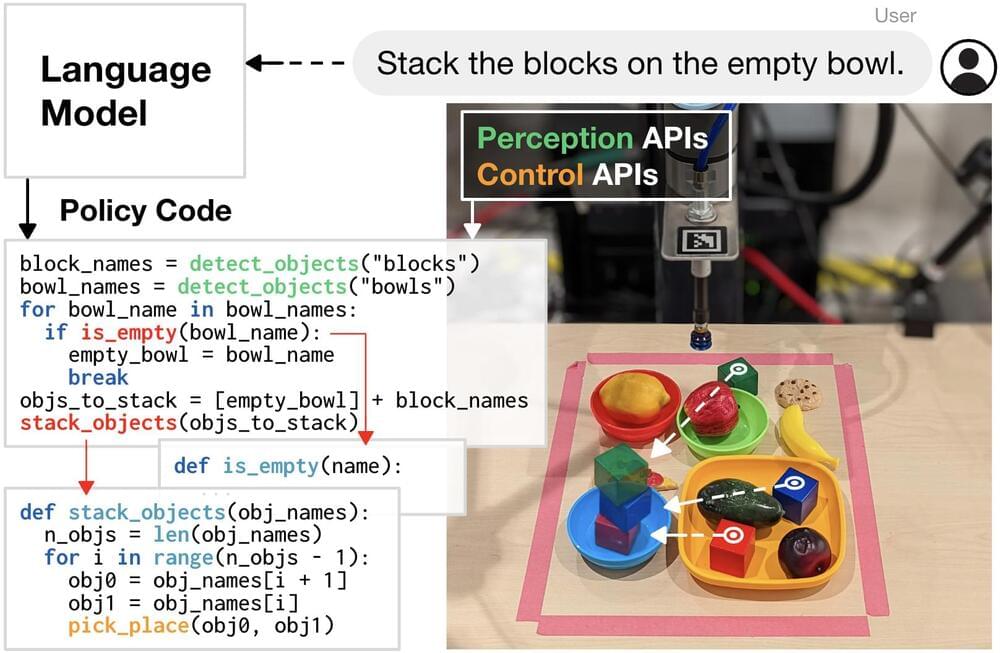Most delivery drones can only carry about one-third of their mass as payload, because most of their mass is both critical, like wings, and comes in the form of things that are essentially useless to the end user, like wings. But EPFL researchers have invented a drone with wings made from rice cakes.
Page 3176
In the past 30 days, SpaceX has completed 8 orbital launches. If they kept this up for a year, they would be doing 8 12 = 96 which is about their goal for next year. To give you an idea of how fast SpaceX is growing, last year, SpaceX only did 31 launches which was a record for them.
Even more impressive, one of these launches was a Falcon Heavy which is basically 3 Falcon 9’s tied together. So SpaceX completed 10 orbital launches of Falcon 9s in the past 30 days which would be a rate of 120 Falcon 9 orbital launches per year!
A history of orbital rocket launches.
Nov 3, 2022
Criminals hijack antivirus software to deliver malware
Posted by Genevieve Klien in category: cybercrime/malcode
Nov 3, 2022
Malicious Android apps with 1M+ installs found on Google Play
Posted by Genevieve Klien in categories: mobile phones, security
A set of four malicious applications currently available in Google Play, the official store for the Android system, are directing users sites that steal sensitive information or generate ‘pay-per-click’ revenue for the operators.
Some of these sites offer victims to download fake security tools or updates, to trick users into installing the malicious files manually.
At the time of publishing, the apps are still present on Google Play under a developer account called Mobile apps Group, and have a total install count of more than one million.
Nov 3, 2022
Meet the new team of advisers Elon Musk has tapped to reshape Twitter
Posted by Genevieve Klien in categories: Elon Musk, futurism
People like Jason Calacanis and David Sacks could play a huge role in charting the social media platform’s future—for better or worse.
Nov 3, 2022
Brain changes in autism are far more sweeping than previously known, study finds
Posted by Genevieve Klien in categories: biotech/medical, neuroscience
Brain changes in autism are comprehensive throughout the cerebral cortex rather than just particular areas thought to affect social behavior and language, according to a new UCLA-led study that significantly refines scientists’ understanding of how autism spectrum disorder (ASD) progresses at the molecular level.
The study, published today in Nature, represents a comprehensive effort to characterize ASD at the molecular level. While neurological disorders like Alzheimer’s disease or Parkinson’s disease have well-defined pathologies, autism and other psychiatric disorders have had a lack of defining pathology, making it difficult to develop more effective treatments.
The new study finds brain-wide changes in virtually all of the 11 cortical regions analyzed, regardless of whether they are higher critical association regions—those involved in functions such as reasoning, language, social cognition and mental flexibility—or primary sensory regions.
Nov 3, 2022
Google Just Shut Down It’s Artificial Intelligence After It Revealed This
Posted by Kelvin Dafiaghor in categories: education, robotics/AI
Nov 3, 2022
Scientists use mRNA technology to create a potent flu shot that could last for years
Posted by Kelvin Dafiaghor in category: biotech/medical
Months later, the trio of scientists published a paper that found that a virus, not a novel strain of bacteria like some within the scientific community originally thought, was to blame. Over the following decades, other scientists unfurled the gnarly branches of the large influenza family tree, gathering enough information to formulate a vaccine, which (hopefully) most of us get before every flu season.
But here’s the catch: Influenza is a master shapeshifter. Every year, strains of the virus that infect humans — influenza type A and B — evolve in ways that evade vaccines and, subsequently, our immune systems. This results in uneven vaccine effectiveness from year to year and also undermines efforts to pack a flu shot with a broad, long-lasting immune punch.
But we may have an ace in the hole thanks to mRNA, the same technology used for our Covid-19 vaccines. In a study published Monday in the journal Proceedings of the National Academy of Sciences, researchers at the University of Pennsylvania, Icahn School of Medicine at Mount Sinai, and other institutions have cooked up an mRNA-based influenza vaccine that targets four viral proteins that tend to remain the same across different strains of influenza.
Nov 3, 2022
Cloned cannabis cells with 12 times more potency are grown in Israeli bioreactor
Posted by Brent Ellman in categories: biotech/medical, innovation
“We grow them in huge bioreactors in just three weeks — while regular cannabis takes 14 to 23 weeks,” Sobel said. “Our tech can also significantly increase the levels of active ingredients, as a percent of the weight, versus what is found normally in the plant.”
An Israeli company has cloned hemp cells and used a bioreactor to grow them into a substance with all the active compounds of cannabis — and 12 times the potency.
BioHarvest Sciences says the breakthrough could make the medical benefits of cannabis available in cheaper, cleaner and greener form. It has started applying for the necessary licenses to manufacture and sell its product for medical use in Israel and the United States.
A common approach used to control robots is to program them with code to detect objects, sequencing commands to move actuators, and feedback loops to specify how the robot should perform a task. While these programs can be expressive, re-programming policies for each new task can be time consuming, and requires domain expertise.
What if when given instructions from people, robots could autonomously write their own code to interact with the world? It turns out that the latest generation of language models, such as PaLM, are capable of complex reasoning and have also been trained on millions of lines of code. Given natural language instructions, current language models are highly proficient at writing not only generic code but, as we’ve discovered, code that can control robot actions as well. When provided with several example instructions (formatted as comments) paired with corresponding code (via in-context learning), language models can take in new instructions and autonomously generate new code that re-composes API calls, synthesizes new functions, and expresses feedback loops to assemble new behaviors at runtime.


















